What are Concrete Vibrators
Concrete vibrators are essential tools in the construction industry, used to ensure the structural integrity and strength of concrete during its placement. When concrete is poured, it contains air bubbles trapped within the mixture, which can compromise the concrete's durability and finish if not properly addressed. This is where concrete vibrators come into play.
The primary purpose of a concrete vibrator is to eliminate these air bubbles by agitating the wet concrete mixture. Vibrators come in various forms, but they all work on a common principle: transmitting vibrations through the concrete mix at high frequency, encouraging air bubbles to rise to the surface and escape, which helps in compacting the mixture and increasing its density.
Professionals in various industries, such as construction works, building material shops, manufacturing plants, and more, utilize concrete vibrators. These devices are designed for workers who aim to achieve high-quality concrete foundations, slabs, walls, and other structural elements. The effectiveness of a concrete vibrator is determined by its ability to deliver consistent power and reach all areas of the poured concrete, ensuring a smooth and strong finish.
Different types of vibrators are used depending on the specific requirements of a job. Internal or poker vibrators are immersed directly into the wet concrete mixture. External or formwork vibrators are attached to the outside of the formwork or mold. Surface vibrators are used on large slabs and help in consolidating the top layer of concrete. Each type operates slightly differently but follows the same fundamental principle of creating vibrations to compact the concrete mix efficiently.
Types of Concrete Vibrators
The construction industry utilizes several types of concrete vibrators to ensure that concrete is properly consolidated and free of air pockets. Here's a closer look at some of these options:
Internal (Poker) Vibrator: This common type is directly immersed into the wet concrete. It consists of a long probe or poker that delivers vibrations deep within the mix. Poker vibrators are highly effective for most applications and are available in various sizes to suit different project scales.
External (Formwork) Vibrator: Attached externally to formwork or casting molds, these vibrators transmit vibrations through the form to the adjacent concrete. They're particularly useful when internal vibration is not feasible due to complex shapes or rebar congestion.
Surface (Screed) Vibrator: These are used on freshly-poured concrete slabs or floors. Surface vibrators evenly distribute vibrations across the top layer of concrete, helping in leveling and compacting it for a smooth finish.
Vibrating Table: Not typically used at construction sites but more in precast operations where small components like tiles or panels are manufactured. The entire table vibrates, ensuring even distribution of vibrations throughout small-scale forms or molds.
How to Choose Concrete Vibrators
Selecting the right concrete vibrator requires careful consideration of several factors due to its critical role in ensuring structural integrity. Here's what businesses should consider when purchasing:
Type and Size: Based on your specific application—whether it's pouring foundations, walls, beams, or slabs—the type and size of vibrator needed will vary. Internal vibrators work well for most general construction activities, while external and surface vibrators might be preferred for specialized tasks.
Frequency and Amplitude: The effectiveness of a vibrator is dictated by its frequency (vibrations per minute) and amplitude (vibration strength). Different consistencies and volumes of concrete may require varying levels of frequency and amplitude.
Power Source: Concrete vibrators can be powered electrically, by battery, or by diesel engine. The choice depends on availability of power on site and mobility needs. Electric models are common for indoor use or where power supply is readily available.
Durability: Given that construction environments can be harsh, it's vital that your chosen vibrator is built to last with robust materials like stainless steel or heavy-duty carbon steel.
Best Concrete Vibrators on Alibaba.com
Alibaba.com provides businesses with a comprehensive marketplace for sourcing various types of concrete vibrators suitable for diverse industrial applications. When it comes to ensuring quality constructions, having reliable equipment is paramount; therefore, Alibaba.com offers an extensive selection from verified suppliers who provide machinery test reports and after-sales service options.
Buyers can filter through an array of products based on core components like engine type or voltage requirements which cater to local service locations worldwide—ensuring you find equipment compatible with your regional standards. Additionally, Alibaba.com emphasizes user convenience by offering features like mobile buying capabilities and support for local languages.
Trade Assurance service further enhances buyer confidence by protecting payments until delivery completion. The platform's commitment to facilitating global trade while prioritizing quality and reliability makes it an excellent place for businesses looking for construction machinery tailored to their specific needs—including those searching for high-efficiency concrete vibrators with long service life and easy maintenance features.
Common FAQs for Concrete Vibrators
What is the primary purpose of a concrete vibrator?
Concrete vibrators are used to consolidate freshly poured concrete and eliminate air pockets that can compromise the structural integrity of a concrete structure.
How do I determine the best type of concrete vibrator for my project?
The choice of concrete vibrator depends on the specific requirements of your project, including the size and complexity of the concrete pour, presence of rebar, and desired finish.
Can a concrete vibrator be used for both small and large-scale projects?
Yes, there are different sizes and types of concrete vibrators available that are suitable for both small and large-scale construction projects.
How does an internal (poker) vibrator differ from a surface (screed) vibrator?
An internal (poker) vibrator is immersed into the wet concrete to consolidate it from within, while a surface (screed) vibrator is used on top of the concrete to smooth out the surface and remove air pockets.
What power sources are available for concrete vibrators?
Concrete vibrators can be powered by electricity, batteries, or diesel engines, depending on the specific model and application requirements.
What should I look for in terms of frequency and amplitude when choosing a concrete vibrator?
The chosen frequency and amplitude should match the properties of the concrete mix and the requirements of the project to ensure effective consolidation without over-vibrating.
Are there any maintenance considerations I should be aware of for concrete vibrators?
Routine maintenance typically includes checking for wear and damage, ensuring electrical components are intact, and lubricating moving parts as needed to prolong equipment life.
Can I use a single type of concrete vibrator for different stages of construction?
While some vibrators may be versatile enough to be used in different stages, it's often necessary to use specific types tailored to particular applications, such as internal vibrators for initial consolidation and surface vibrators for finishing slabs.
Is it important to consider the durability of a concrete vibrator?
Yes, since construction environments can be harsh, choosing a durable concrete vibrator made from robust materials like stainless steel or heavy-duty carbon steel is essential.
What after-sales services should I expect with my purchase of a concrete vibrator?
After-sales services can include online support, video technical support, or even engineers available to service machinery overseas, depending on the supplier's offerings.

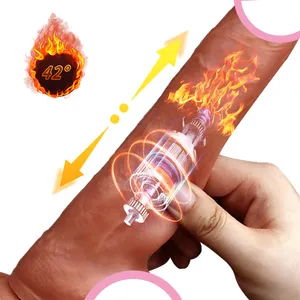
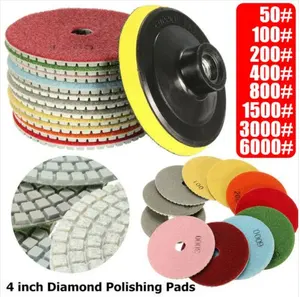








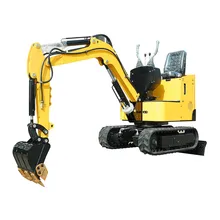

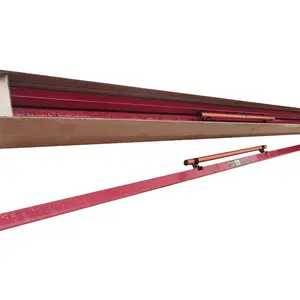
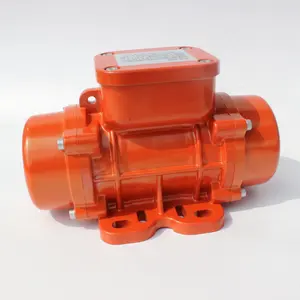

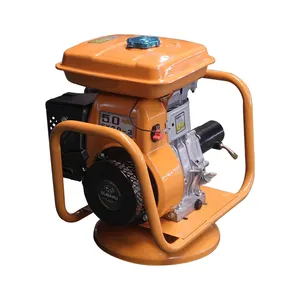













 浙公网安备 33010002000092号
浙公网安备 33010002000092号 浙B2-20120091-4
浙B2-20120091-4